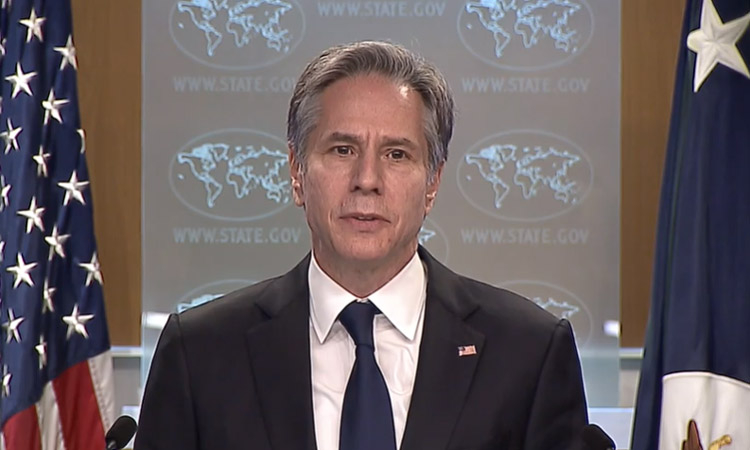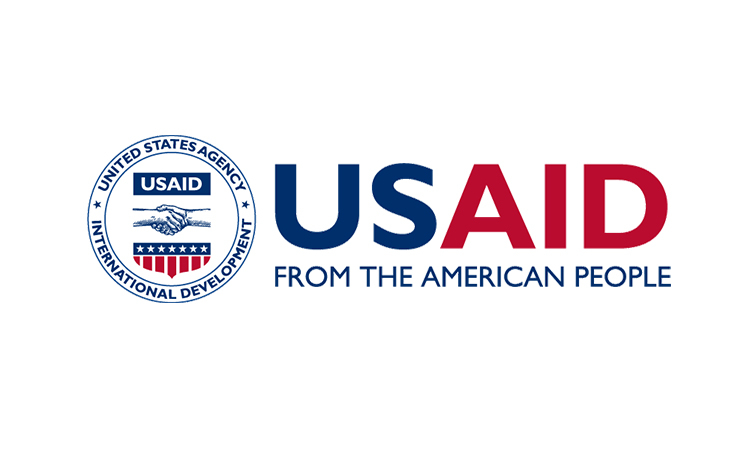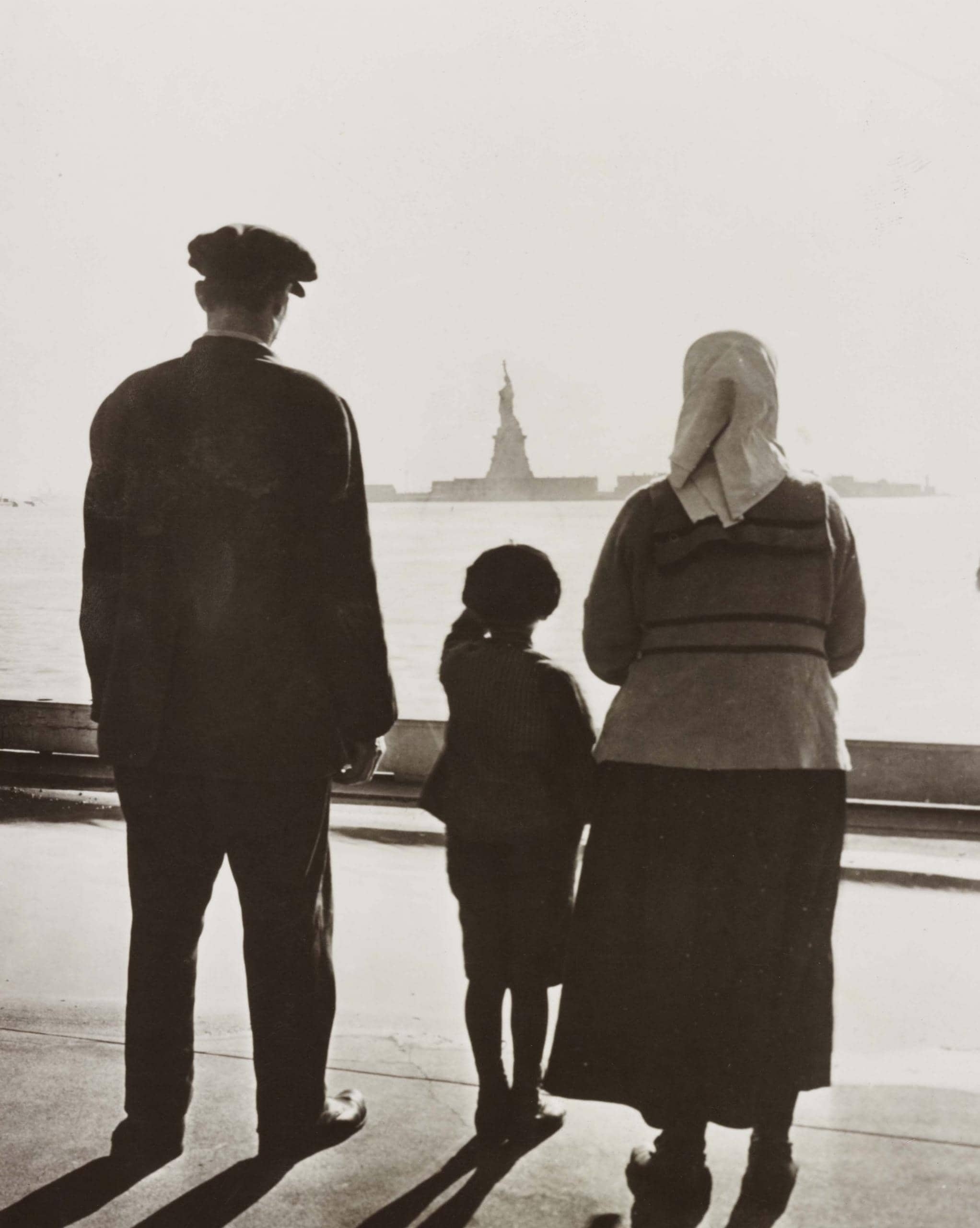On Wednesday, July 20, the US State Department released an update to the so-called “Angel List”. The document is a list of “individuals who have knowingly been involved in acts that threaten democratic processes or institutions, are involved in significant corruption, or have obstructed investigations of such corruption in Guatemala, Honduras and El Salvador.”
The list punishes corrupt individuals who undermine democracy or obstruct corruption investigations. It also imposes sanctions on those allegedly involved in the following crimes: corruption related to government contracts, bribery and extortion, and facilitating or transferring the proceeds of corruption, including through money laundering.
The list just released by the Ministry of Foreign Affairs includes three officials close to El Salvador’s President Nayib Bukele, including the head of the ruling party’s legislature, the press secretary and a senior official of the legal secretariat of El Salvador. the presidency. A former security minister and his wife also appear, as does a pro-government mayor linked to drug trafficking. From Guatemala, it includes four influential businessmen involved in corruption schemes, law enforcement officials under investigation for attempting illegal interference in the election of senior court officials, and the impunity prosecutor appointed by Attorney General Consuelo Porras. And in the case of Honduras, the inclusion of four former officials of the government of President Manuel Zelaya (2006-2009), husband of the current president, Xiomara Castro, stands out. One of these officials is currently an adviser to Castro and two others are members of Congress for the Libre party, which Zelaya leads. There are also former officials of the government of former President Porfirio Lobo (2010-2014). The son of one of them, Fabio Lobo, has been convicted in the United States for drug trafficking.
In El Salvador
A number of developments that have had a negative and increasing impact on the country’s judiciary and on the state of human rights and democracy are a matter of concern for the United States. Read also : What would happen to Russia without the United States and Europe? – OpEd. The current list of sanctioned persons confirms this and illustrates a rejection of:
The lack of judicial independence after the removal of five magistrates from the Constitutional Chamber in May 2021. On this occasion, the Ministry of Foreign Affairs rebuked Presidential Adviser Francisco Javier Argueta Gómez for his direct influence on this event that significantly affected the democracy of El Salvador .
Freedom of expression is under attack by the Gang Prohibition Act, which criminalises the dissemination of messages related to gangs. The United States, believing the law may promote censorship, endorses Christian Reynaldo Guevara Guadrón, a Legislative Assembly deputy and leader of the ruling Nuevas Ideas faction, which promoted and approved the law. Ernesto Sanabria, press secretary of the presidency, was also on the list.
Kleptocracy, drug trafficking and money laundering committed at the municipal level in the city of San Miguel, the second largest in the country. José Wilfredo Salgado García, the city’s mayor, was sanctioned. Similarly, the sanctions reveal a kleptocratic state by linking cases of endemic corruption to money laundering, such as those attributed to the former Security Minister during Antonio Saca’s rule (2004-2009).
Prior to the official publication of this update, a tentative list had leaked that included the United States’ Treasury Secretary José Alejandro Zelaya, who is close to President Nayib Bukele and his circles of power. According to the leaked document, Zelaya was accused of funneling $497 million in public funds to the country’s municipalities to fund essential services to gain support for his political allies, who were contenders in the 2021 parliamentary and municipal elections. however, was ruled out, at least publicly. Had the sanction been enforced, it would have had the most political-financial implications. This has to do with the government’s legitimacy and credibility in the eyes of international financial organizations, especially those whose board of directors or actions are related to US interests, such as the International Monetary Fund, with which El Salvador is still trying to negotiate a loan to meet its debt obligations.
In Guatemala
Along with Nicaragua, Guatemala is the country with the highest number of sanctioned individuals, reflecting the degree of democratic institutional deterioration that both countries are experiencing. Some profiles of those sanctioned in Guatemala show that corruption and anti-democratic actions are encouraged and carried out not only in the public sphere, but also by the private sector, especially business. The sanctioned individuals reflect specific U.S. concerns regarding:
The private sector and corruption: persons associated with companies involved in construction, the energy sector, including companies related to port activities, who have fostered a kleptocratic and corrupt state by paying bribes to the state to be favored with contracts are sanctioned. This may interest you : Flight delays and cancellations increase: Summer trips look messy. It also reflects that the relationship between the state and the private sector has a complex and damaging root to what some US officials have labeled as a “predatory elite.”
Judiciary co-optation and infiltration: Guatemala’s selection processes of judges and magistrates have been influenced by illegal networks seeking to co-opt the country’s justice system in their favor. Six of the 16 sanctioned are lawyers, magistrates and other actors involved in a corruption scheme unearthed by the International Commission against Impunity in Guatemala (Comisión Internacional contra la Impunidad en Guatemala – CICIG), called Parallel Commissions, which regulates the selection processes of officials. , which jeopardize their impartiality and independence.
Criminalization of judicial operators. The list included the current head of the Special Prosecutor’s Office against Corruption (Fiscalía Especial Contra la Impunidad – FECI), Rafael Curruchiche, confirming the prosecution’s commitment to obstructing justice in large-scale corruption cases and also a key player in the criminalization of independent judicial actors. Today twenty-four of them are in exile.
Sanctions on some of the economic elites can have financial consequences for them in cases where they have accounts, investments and interests in the United States. The cancellation of visas could result in people like sanctioned Ramon “Moncho” Campollo Codina, who is a partner in international consortia, being banned from doing business in the United States. In addition, the credibility of private sector investment in the country is questioned and foreign investment may be harmed.
Unlike the sanctions against El Salvador, Honduras and Nicaragua, in the case of Guatemala, no person close to President Alejandro Giammattei is mentioned, despite strong indications of corruption around him and his resignation to the criminalization and prosecution of independent justice operators.
In Honduras
The inclusion of several actors linked to both Manuel Zelaya and Xiomara Castro could cause a rift in bilateral relations between the United States and Honduras, especially affecting some proposals and initiatives to tackle structural impunity and endemic corruption . Read also : Does Roe’s regime have a political silver lining for Democrats?.
Doubts about the integrity of some members of the ruling Libre party: The list includes Vice President of Congress Rasel Antonio Tomé Flores, and Congresswoman Edgardo Antonio Casaña Mejía, both of President Xiomara Castro’s Libre Party. Casaña used $5 million in pensions for political purposes, mainly to win votes; although the case was heard by the Honduran legal system, the congressman was favored by an amnesty.
Corruption in Manuel Zelaya’s government and rejection of the amnesty law: The list includes four officials of former President Manuel Zelaya, who are involved in bribery from various state portfolios, such as health and labor. In addition, reference is made to the appropriation of public funds for political purposes by the government of Zelaya with the sanction of Enrique Alberto Flores Lanza, former minister of the presidency, who was accused of corruption in the Honduran justice system but benefited from the recent amnesty law.
State looting under Juan Orlando Hernández: Seven of the 15 sanctioned are people who belonged to Hernández’s government. In the period 2010-2014, 3.5 million dollars was embezzled from various institutions aimed at reducing poverty.
Drug trafficking: With the ratification of Juan Carlos “El Tigre” Bonilla, who has been charged by a US federal court with overseeing cocaine shipments on behalf of former President Juan Orlando Hernández and his brother, Washington reaffirms its commitment to the fight against drug trafficking and dismantling of criminal networks in the region.
The situation in Honduras is worrying: with the inclusion of people close to both Castro and Zelaya, a diplomatic rift could develop that would affect initiatives such as the installation of the International Commission against Impunity (Comisión internacional contra la Corrupcion y la Impunidad and Honduras – CICIH). In fact, Castro’s government has begun to engage in authoritarian practices that call into question its democratic commitment, for example with the enactment of the Supreme Court’s Appointments Committee for the Election of Magistrates Act, which leaves the door open to infiltration by partisan political interests. .
In Nicaragua
It is the country with the highest number of sanctioned individuals (23), including judges and prosecutors whose actions have been fundamental in criminalizing and prosecuting political opponents of the Ortega-Murillo regime and those responsible for human rights violations against political prisoners. It emphasises:
Lack of impartiality and autonomy of the prosecution: The autonomy of the prosecution in Nicaragua is subordinate to the Ortega-Murillo regime. Prosecutors from various agencies have been charged with opening criminal investigations on false arguments with the aim of terrifying and silencing dissident voices.
An executive-owned judiciary: The list includes thirteen judges who have tried and convicted various actors who dissident voices against the regime. The judiciary is one of the main perpetrators of violations of due process, defense and other rights recognized in international human rights instruments.
With regard to Nicaragua, given the closure of spaces and the critical situation of political prisoners, while the sanctions show that the United States condemns the situation in the country, the sanctions would only have a positive effect if the economic-financial interests of those involved affected by the deterioration of democracy. Recently, Biden’s presidential adviser Juan González said in an interview with Univision that they have been trying to communicate with the Ortega-Murillo regime. The sanctions could perhaps open a channel of dialogue for the release of political prisoners, who at present can only rely on amnesty or presidential pardon.
The Engel List is governed by the United States-Northern Triangle Enhanced Engagement Act, which was incorporated in December 2020 as part of the State Department Appropriations, Foreign Operations, and Related Programs Act of 2021. Section 353(b) requires the Department of State Department prepare the list and release it to Congress at least twice a year. The main consequence for those on the list is that they are ineligible for visas to enter the US and open the possibility to hold assets from accounts or properties on US soil.
In the first publication of the Engel List, issued in July 2021, the Ministry of Foreign Affairs listed 14 Salvadorans, 20 Guatemalans and 21 Hondurans, most of them civil servants and former officials close to governments in power and involvement. were in the judicial, legislative and executive branches. branches. In none of the three countries did the public prosecutors investigate these individuals, and the effects of this varied from country to country. Analysts said there was no major impact as no high levels of wealth were identified. Similarly, in September 2021, they issued a new list listing the current Attorney General of Guatemala, Consuelo Porras, and the Secretary General of the Attorney General’s Office, as well as five current magistrates of the Constitutional Chamber of the Supreme Court of El Salvator.
In addition to the Angel List, the United States has used other instruments against Central American governments or individuals. For example, it has imposed sanctions through the Treasury Department’s Office of Foreign Assets Control (OFAC), which have allowed the freezing of assets and the assets of some criminal and corrupt actors in the US financial system. The Justice Department has also recently investigated politicians and businessmen associated with drug trafficking, corruption and organized crime. The most exemplary case is that of former Honduran President Juan Orlando Hernández, who was extradited to New York in April on charges of cocaine and arms trafficking, and the investigation of two officials close to Salvadoran President Nayib Bukele for dealing with the MS13 and Barrio 18 gangs.
The Reinforcing Nicaragua’s Adherence to Conditions for Electoral Reform Act of 2021 (RENACER) also provides the United States with tools to monitor, report on and address corruption in President Daniel Ortega’s administration and abuse of power under his regime. It adds Nicaragua to the list of Central American countries subject to corruption-related visa restrictions.




